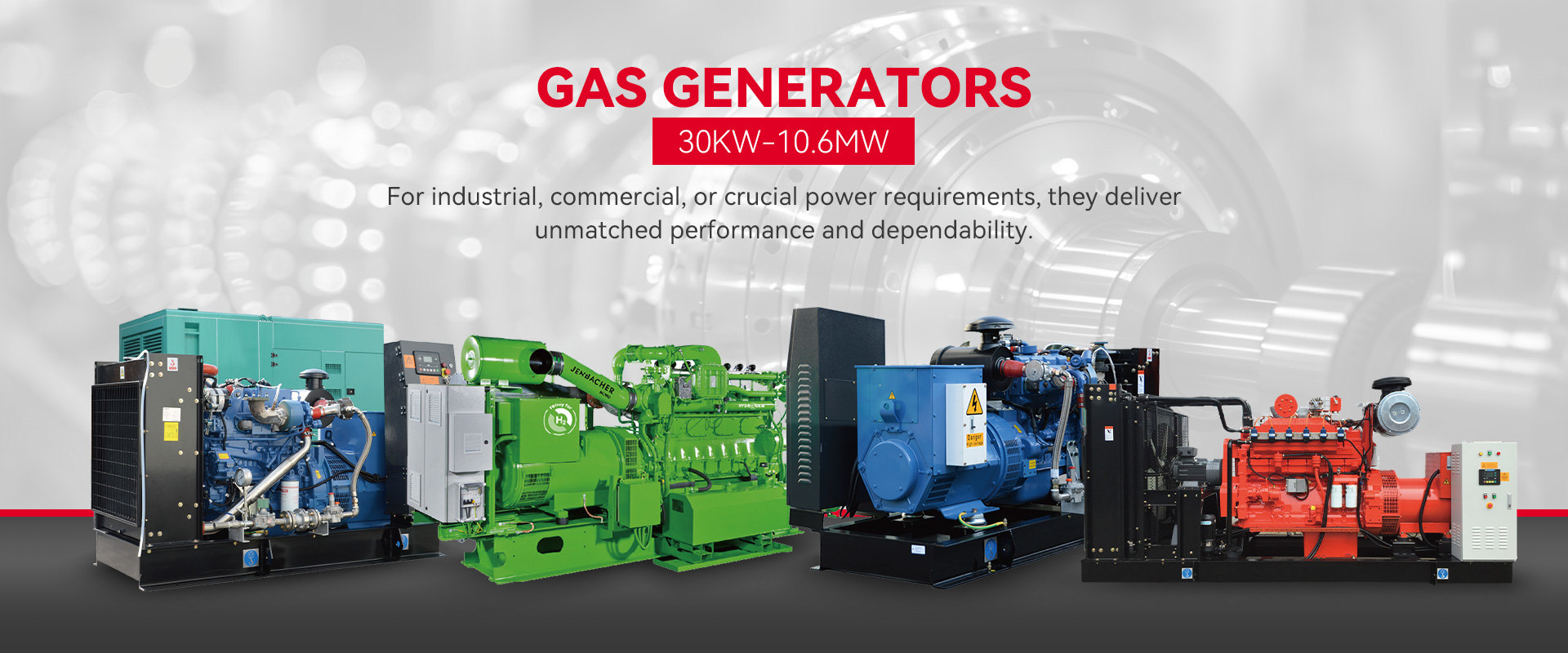In the realm of backup power generation, two prominent options jump out: gas and diesel generators. If the power goes out, and the requirement of it becomes critical, deciding on the best generator set can make a big difference. But wait, how do you decide between gas main and diesel generators? Every one has a unique list of benefits and drawbacks, as well as the choice ultimately depends on your particular needs and circumstances.

On this page, we’ll look into the distinctive features, advantages, and cons of natural gas and diesel generator sets, helping you to produce a well-informed decision on which option aligns best using your needs.
Gas Generators
Advantages
Cleaner Emissions: One of the primary advantages of gas main generators could be the lower environmental impact. When natural gas burns, it generates fewer harmful emissions, including particulate matter, nitrogen oxides, and sulphur dioxide, over a diesel genset. This makes natural gas generators an eco-friendly decision for those worried about air quality and environmental sustainability.
Cost-Effective Fuel: Gas main is frequently less costly than diesel fuel. The price savings might be significant over time, specifically if you prefer to takes place generator frequently. Furthermore, the production of natural gas is often more stable, reducing price fluctuations.
Less Maintenance: Natural gas generators typically require less maintenance than their diesel counterparts. This comes from the cleaner-burning nature of gas, which results in fewer deposits and soot buildup in the engine, extending the generator’s lifespan.
Quieter Operation: Gas main generators provide quieter operation. This is a vital consideration in areas and settings where environmental noise has to be minimized.
Disadvantages
Limited Fuel Storage: A disadvantage to natural gas generators is the attachment to a nonstop availability of gas. This is often problematic during extended power outages or perhaps in remote locations a consistent gas main supply will not be available.
Lower Energy Density: Gas main has a lower energy density compared to diesel, meaning you might have to have a larger storage capacity or higher frequent refuelling for the similar output.
Lower Fuel Efficiency: Natural gas generators are usually less fuel-efficient than diesel generators, which can increase operational costs in the end.
Lower Portability: Due to the need for an avid gas main supply, these generators are less portable and versatile than diesel generators.
Diesel Generators
Advantages
High Energy Density: Diesel fuel is renowned for its high energy density. This implies diesel generators provides more power inside a smaller package, causing them to be suitable for applications where space is bound.
Fuel Storage: Diesel generators have the benefit of being able to store fuel for longer periods without degradation. This may cause them the best option for backup power in remote locations and through long-term power outages.
Fuel Efficiency: Diesel generators are known for their fuel efficiency, consuming less fuel for similar output as gas main generators. This results in lower operational costs.
Greater Reliability: Diesel engines are usually better and sturdy, be a catalyst for greater reliability in demanding conditions. They are generally the go-to option for mission-critical applications.
Disadvantages
Emissions and Environmental Impact: Diesel generators emit higher amounts of pollutants, including nitrogen oxides and particulate matter, that may have adverse effects on quality of air and public health. Stricter emissions regulations are already carried out to mitigate these complaints.
Noise Levels: Diesel generators are likely to be noisier than propane generators, that may be a problem in areas or where environmental noise is a consideration.
Fuel Availability and value: Diesel fuel might be more expensive and at the mercy of price fluctuations. Additionally, storing large volumes of diesel fuel can cause safety and environmental risks.
Maintenance Requirements: Diesel generators typically want more frequent maintenance due to soot and carbon buildup in the engine, which could improve the total price of ownership.
When you ought to Choose Gas Generators?
Environmental Concerns: Should you prioritize environmental sustainability and cleaner emissions, an all natural gas generator may be the way to go.
Financial savings: If you’re trying to reduce fuel costs over time and also have use of the best natural gas supply, propane generators may be more cost-effective.
Quiet Operation: In residential areas or places where noise levels have to be kept down, natural gas generators are the quieter choice.
More uncommon Use: If your generator serves as a backup for occasional power outages, the reduced maintenance requirements of propane generators make sure they are an expedient option.
When you ought to Choose Diesel Generators?
High Power Requirements: Prefer a high-power output in the compact package, diesel generators, using high energy density, are the better choice.
Reliability: For mission-critical applications where reliability is vital, such as data centres or healthcare facilities, diesel generators are often preferred because of the robust and durable engines.
Remote Locations: In areas with limited use of an organic gas supply or during long-term power outages, diesel generators using reliable fuel storage are the better choice.
Frequent Use: If your generator will dsicover frequent use so you prioritize fuel efficiency, diesel generators might be less expensive in the end.
Conclusion
The decision between gas main and diesel generators is determined by your unique requirements, budget, and environmental concerns. Both kinds of generators have their own advantages and disadvantages, and the secret is to softly evaluate your requirements priorities before making a choice. Additionally, be sure you understand local regulations and emissions standards which could affect your choice.
Check out about used generator set browse this useful site
